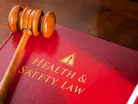The National Transport Safety Board reforms Federal Flight Agency guidelines, creates outrage

Following on from the air-balloon crash in Texas in 2016 which killed all 16 passengers on board, including the pilot, the National Transport Safety Board (NTSB) has looked at ways in which to improve its procedures and competency of its pilots.
By looking at new ways to ensure the health of air-balloon pilots remains a priority and minimises any potential impact on passengers going forward, they have decided to strengthen its regulations.
At present, commercial air-balloon pilots are exempt from regular medical checks through the implementation of the Federal Flight Agency’s medical certification. However, reports have found that the air-balloon crash in Texas occurred as a result of the pilot’s use of Valium, Benadryl and Oxycodone, such medication would have delayed his responses and subsequently led to a fatal accident.
Related stories
- The use of AI will transform patient outcomes, report finds
- Pfizer is looks to sell its consumer healthcare business, pharma competitors
- President Trump begins to break up the Affordable Healthcare Act to increased public outcry
The FAA currently does not undertake drug tests for commercial air-balloon pilots, which is something investigators want reformed, in order for them to be under the same regulations as commercial airplane pilots. However, the agency are adopting (and promoting) the standards of the Balloon Federation of America (BFA), which does not encompass the same level of standards, and is voluntary, not compulsory.
NTSB Chairman Robert Sumwalt has reportedly stated: "Why is the FAA promoting the BFA? It is not an FAA program. The FAA is treating this as the be-all, end-all. They are abdicating their responsibility to provide oversight. They are saying, 'The BFA will take care of this so we do not have to do anything.' That is what is sad."



